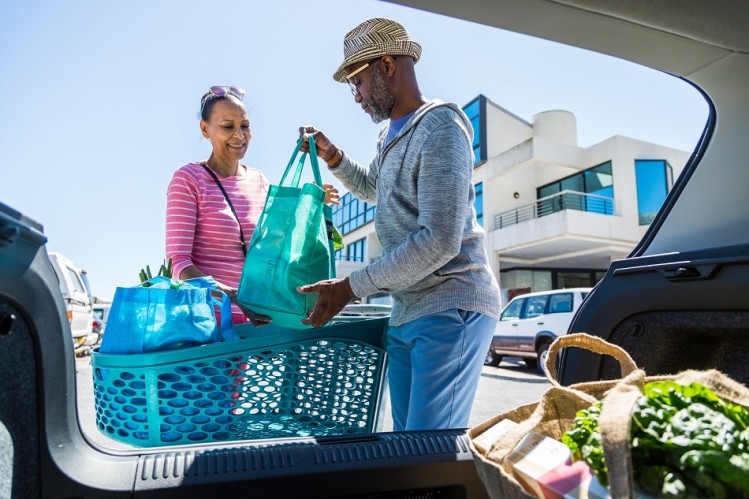Who is being hit hardest by inflation? Less-healthy older adults, poll finds

For the month of August 2022, the price of food rose 11.4% compared to the previous 12 months, according to the Consumer Price Index updated Sept. 13, 2022. Food at home increased by 13.5%,while food away from home was up 8% YoY.
Breaking it down into specific staple categories, the price for fruits and vegetables rose 9.4% for the month of August while the price for dairy and related products was up 16.2% and cereal and bakery products up 16.4%.
While no consumer is immune to rising food prices, there are pockets of US adults that are being impacted harder, according to the University of Michigan's National Poll on Healthy Aging, which is based on findings from a nationally representative survey conducted by NORC (National Occurring Retirement Community) at the University of Chicago for IHPI and was administered online and via phone in July 2022 among 2,163 adults age 50 to 80.
According to the poll, 58% of adults between the ages of 50 and 80 who considered themselves to have fair or poor mental health said the rising cost of food is impacting them "a lot" with 54% responding that it's causing them to make less healthy food choices.
Adults in the same age group with fair or poor physical health shared similar struggles, with 46% heavily impacted by rising food costs, of which 46% said they are eating less healthily as a result.
Those with a low household income (<$30,000) and fewer years of formal education (high school diploma or less) were especially badly impacted, with nearly half saying they are making less-healthy food choices due to inflation.
Individuals who had experienced food insecurity (where food runs out before they can afford to buy more) were three times more likely to say they are eating less healthy diets because of the rise in food costs compared to individuals who had not experienced food insecurity (66% vs. 22%).
Research from Euromonitor tracking the prices of lower and higher priced items found that inflation disproportionately impacts lower-priced, value items in 11 out of 15 categories tracked. As a result, consumers shopping for lower-priced items to fill their shopping carts are experiencing a disproportionately higher grocery bill compared to those purchasing premium items where food prices haven't seen as drastic of a price increase.
Gaps in diet and nutrition
According to the poll, 32% of adults ages 50 to 64 said they eat a well-balanced diet, compared with 44% of those aged 65 to 80. Those who have a college degree were much more likely to say their diet is well-balanced than those with fewer years of formal education (48% vs 28%). The percentage calling their diet well-balanced was even lower among older adults who say their physical or mental health is fair or poor, at 23% and 16% respectively.
When asked about fruit and vegetable intake, 38% agreed that they did not eat enough fruits and vegetables. The percentage was much higher among adults with fair or poor physical health (51%) and fair or poor mental health (56%).
People who reported they do not eat enough fruits and vegetables were more likely to report that their diet has become less healthy because of rising costs, compared with those who feel they do eat enough fruits and vegetables (40% vs. 26%).
In another question about eating habits, 29% of older adults said they eat too many sweets – but much greater percentages saying the same were seen among those with a high school education or less (34%) or incomes under $30,000 (34%), those calling their physical health fair or poor (39%), and those calling their mental health fair or poor (49%).
'... a bad situation worse'
This week at the White House Conference on Hunger, Nutrition and Health, stakeholders across the industry from vertical farming companies to yogurt manufacturers made commitments to expand access to affordable and nutritious foods across the US, representing a total investment of more than $8bn.
AARP (a US interest group focused on the needs of those over the age of 50) and the AARP Foundation said they will expand research on older adults’ access to SNAP and use this research to improve SNAP enrollment rates for older adults, which still lag behind other populations to boost awareness and enrollment in SNAP benefits.
"For our most vulnerable older adults, the huge increase we’ve seen in food costs could make a bad situation worse,” said Preeti Malani, M.D., director of the poll and a physician at Michigan Medicine, U-M’s academic medical center, who urged national policy officials to figure out a way to offer better support for the food and nutrition needs of adults over 50.
















